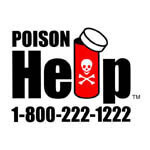 San Antonio (March 19, 2004) – Three young people in South Texas are permanently blind because they sniffed carburetor cleaners – another strong reminder of the serious dangers of getting high off these inhalants, said a specialist from the South Texas Poison Center at The University of Texas Health Science Center at San Antonio.
San Antonio (March 19, 2004) – Three young people in South Texas are permanently blind because they sniffed carburetor cleaners – another strong reminder of the serious dangers of getting high off these inhalants, said a specialist from the South Texas Poison Center at The University of Texas Health Science Center at San Antonio.
As National Inhalants and Poisons Prevention Awareness Week rolls around March 21-27, the need for education, especially among young people, has never been greater. “Last year we had three people who went blind as a result of methanol exposure, specifically to carburetor cleaners,” said Cindy Teter, Pharm.D., certified specialist in poison information at the South Texas Poison Center. “These individuals are in their 20s and 30s. They told us they had been sniffing it for years. This vision loss is irreversible – once it happens you don’t get it back.”
These inhalants also may damage the heart, liver and central nervous system.
Dr. Teter and Leslie DeHart, R.N., are studying the Poison Center’s case files on methanol inhalant poisonings in 2002 and 2003, including one report of poisoning in a 12-year-old. “We started writing an article after seeing this and hope to publish it in an academic journal in the field of toxicology,” DeHart said. “It used to be thought that people wouldn’t end up with high methanol levels and the blindness that goes with it. We thought it was unusual to have three people with vision loss.”
The Poison Center is a free and confidential public service offered 24 hours a day, seven days a week at 1-800-222-1222. The center handled 36 methanol-related calls in 2002 and 2003 and many more involving other inhalants. In 2002, 116 intentional inhalation exposures (all ages and all substances) were reported to the Poison Center. In 2003, 112 were reported.
Carburetor cleaners are particularly toxic. “It’s a cheap way to get high, but I don’t think people realize they can get blindness by huffing methanol,” Dr. Teter said. “Some products contain toluene, which basically kills your brain cells.”
All the methanol cases were in the South Texas Poison Center’s 47-county calling area. Eighteen subjects required aggressive therapy with antidote treatment, dialysis to help eliminate the chemicals from the body, and even intubation or mechanical ventilation. “It can cause some significant symptoms, and that’s the main thing we need to get across to people,” DeHart said.
All of the cases were reported from hospitals where the individuals had been taken and where hospital staff called the Poison Center for consultation. “We get calls from people at home, from Emergency Medical Services so we can give suggestions en route to hospitals and from health care professionals in emergency settings,” DeHart said. “We give a recommendation depending on the exposure.”
The trained personnel manning the phones at the Poison Center are registered nurses, pharmacists or physicians. The Poison Center’s medical director, Miguel C. Fernández, M.D., associate professor of surgery at the Health Science Center, is an emergency medicine physician who is board certified in toxicology.
Dr. Teter urged parents, guardians and mentors to talk to children and teenagers about the dangers of inhalant abuse

